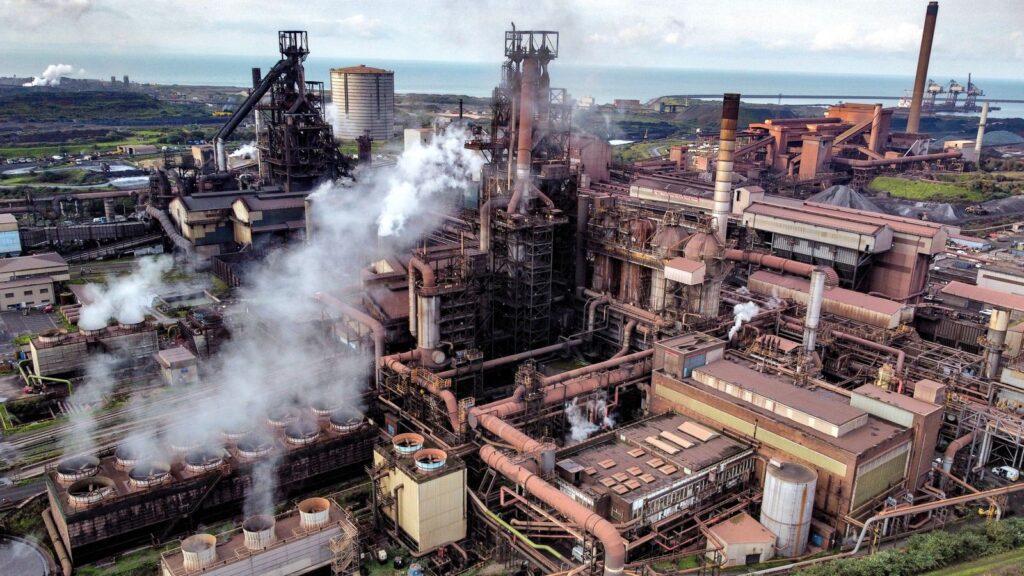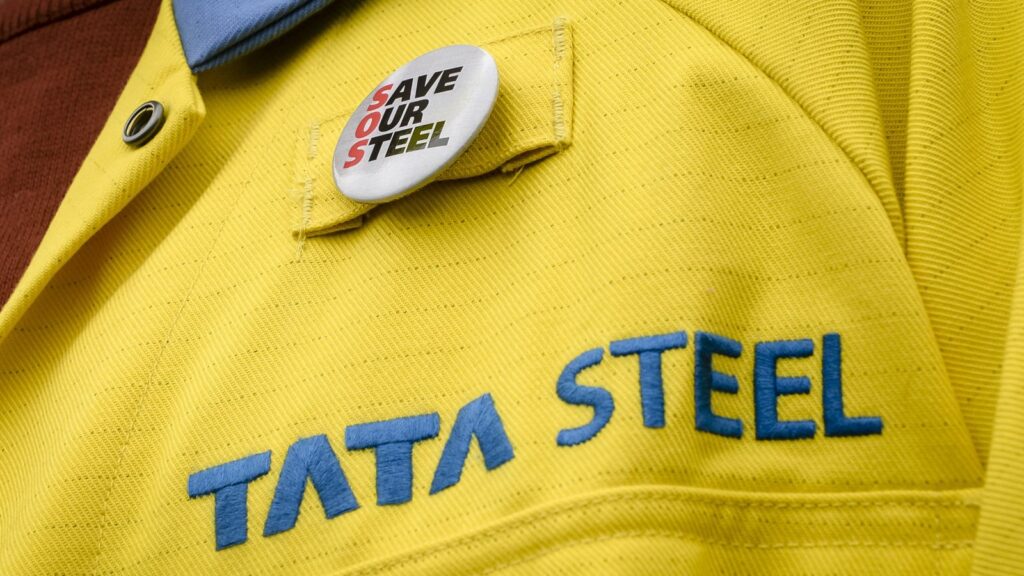In an email sent to staff, Tata UK’s chief executive admitted it would be a “difficult day” of “great emotion and reflection”.

The UK’s biggest steelworks will cease production today after more than 100 years, leading to thousands of job losses across South Wales.
Blast Furnace 4 – the final furnace operating at Tata Steel’s plant in Port Talbot – will be fully shut down at about 5pm, with the last steel made late on Monday evening.
Tata UK chief executive Rajesh Nair acknowledged it would be a “difficult day” filled with “great emotion and reflection” in an email to staff seen by Sky News.
Tata Steel is replacing its blast furnaces with more environmentally friendly electric arc furnaces that use scrap steel sourced from the UK, but are not due to run until 2028.
The switch will cost £1.25 billion, of which £500 million will be covered by the UK government. It will mean the loss of around 3,000 jobs, representing almost 75 percent of the workforce.

Trade unions have been fighting for months to delay the blast furnace closures and reduce the number of redundancies. Roy Rickhus, general secretary of the Community Union, which represents the majority of Port Talbot steelworkers, said it was an “incredibly sad and heartbreaking day” for the UK steel industry.
“This is also a moment of great frustration – it simply did not need to happen this way.”
“Last year the community and GMB presented a credible alternative plan that would ensure a just transition to green steel production and prevent redundancies. Tata’s decision to reject this plan will go down in history as a historic missed opportunity,” he added.

In an email to staff last Friday, Tata UK chief executive Rajesh Nair said: “This is an emotional day for our employees, contractors and local community, past and present.
While of course it is a difficult day, this is a necessary step in our journey towards a green steel future and in safeguarding Port Talbot’s steelmaking heritage for future generations. “
Not only will 2,800 jobs be lost, but many more workers further up the supply chain will be affected.
The Welsh Government today announced that affected businesses will be able to apply for funding to help deal with “short-term challenges” during the transition period.
Joe Stevens, Secretary of State for Wales and Chair of the Transition Committee, said:
That’s why I announced this £13.5 million fund within weeks of the new UK Government coming into power and worked hard with our Welsh Government and council partners to make applications possible.
I encourage affected businesses to come forward and assess whether they are eligible for this financial support as part of the wider support package we are rolling out. This Government will support workers and businesses no matter what.
The giant Port Talbot steelworks will not close completely and its hot and cold rolling mills will continue to operate to roll steel slabs imported from overseas.
But today is not only a hugely important day for the UK’s industrial infrastructure, but also for the cities on which the steel industry is based and which will no longer produce that industry.
The government announced earlier this month it will publish a strategy for the future of UK steel next spring

